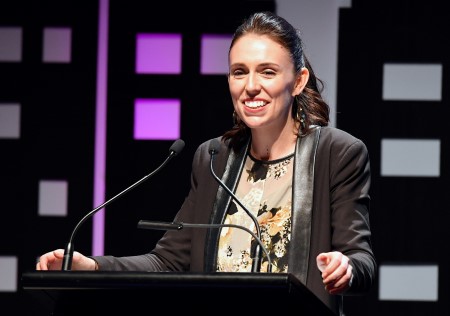- Labour poised to have multiple coalition partner options
- NZ First support waning - poll averages
- Crucial small parties express willingness to work with Labour
(Adds quotes from leaders of minor parties; paragraphs 4, 9, 10)
The rising popularity of New Zealand's Labour Party in hotly contested elections is making it less likely that the nationalist New Zealand First Party will play kingmaker, poll averages released on Friday show.
The uncertainty over which combination of parties will decide the next government is worsening an already topsy-turvy election, previously seen as a slam dunk for the centre-right National Party, which has ruled for almost a decade.
Since taking over as leader last month, charismatic politician Jacinda Ardern has almost single-handedly changed the chances of her Labour Party at the Sept. 23 election.
"When I go out and knock on doors...there is a feeling for change, there is," Marama Fox, a leader of the Māori Party, said at a televised debate between leaders of smaller parties, referring to Labour's newfound popularity.
Fox's party, which campaigns for the rights of indigenous New Zealanders, could play a crucial role in determining the next government. Though it has been in a coalition with National for nine years, Fox said she could work with Labour.
Support for newly invigorated Labour rose to 41.8 percent in opinion polls, nudging above the National Party's 41.1 percent, figures released by media showed.
That put the centre-left opposition party closer to being able to form a government with the Green Party, polling at around 5.4 percent, and the Māori Party, which posted support of about 1.2 percent.
Alternatively Labour could join forces with New Zealand First, which slipped to 7.9 percent and had previously been thought likely to determine which major party governed.
Green Party leader James Shaw would not rule out a deal with New Zealand First, but expressed reluctance, as the party's outspoken leader would not commit to either National or Labour.
"He's a bad date," Shaw said of Peters' last-minute decision to skip the debate. "He's stood us up tonight...he's completely unreliable and you don't know which way he's going to go."
But if the Green Party fell further, sinking below the support threshold of 5 percent for seats in parliament, that would put New Zealand First in an even stronger position.
"It is really unusual...it's all about which pieces land where," said Grant Duncan, political analyst at Auckland University.
Minor parties often have an outsize role in New Zealand's proportional representation system, in which a party, or combination of parties, needs 61 of Parliament's 120 members - usually about 48 percent of the vote - to form a government.
- Forums
- NZX - General
- News: UPDATE 1-Minor New Zealand parties in focus as hotly contested election gets tighter






